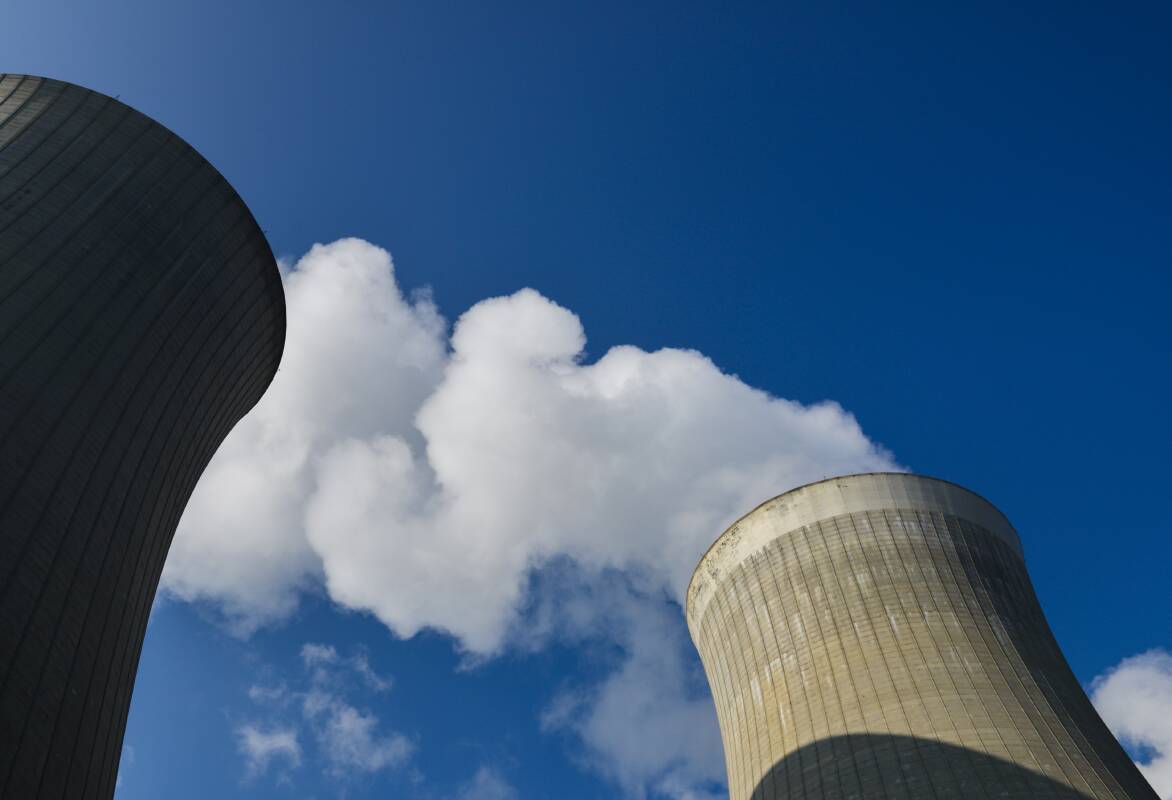
The people of the Hunter should be alert and alarmed.
The alternative prime minister, Peter Dutton, wants to build small nuclear reactors on the site of ageing coal-fired power plants. And we all know he's not planning one for the suburbs he represents in northern Brisbane.
He's talking about the Hunter, which has of course hosted the Eraring, Bayswater and Liddel power plants.
If you want to understand the risk this poses to the Hunter, consider what's unfolding in Japan. In 2011 an earthquake destroyed the Fukushima nuclear power plant's cooling system, causing three reactors to melt and release large amounts of radiation.
Since then, treated water has been stored in hundreds of tanks that now cover most of the plant and are almost full. The tanks are expected to reach their capacity of 1.37 million tons by next year.
So how is Japan dealing with this? Well just last week it won the right to begin spilling this treated radioactive water into the sea. Understandably, neighbours like South Korea are aghast, deeply concerned about what this might mean for food, marine life and ecological health.
The Electrical Trades Union (ETU) believes nuclear energy is profoundly risky and the Japanese should never have developed facilities such as Fukushima in the first place.
But Australia has even less excuse to go down this path. We have many times the renewable energy resources of Japan and absolutely no business getting involved in such a risky endeavour.
As the global renewable energy expert Dr Saul Griffith has pointed out, no nation possesses the same combination of land mass, sunshine and climate as Australia. When you add our existing lead with rooftop solar - which one in three homes have - we would be fools to squander that headstart by instead developing risky, expensive and unproven nuclear power plants.
Does anyone really want to consider flushing radioactive water into Lake Macquarie, no matter how well treated it is?
Nuclear advocates like to tell us that small nuclear reactors are getting cheaper. Yet the economics never quite stack up, and the construction time is at least nine years.
However, the Earth doesn't have a decade. And right now, with proven solar technology we can already harness the cheapest energy in the history of humanity to power our homes, schools, hospitals and businesses, and create a vibrant green manufacturing industry.
In contrast to Dutton's nuclear thought bubble, the benefits of renewables to the Hunter are clear and quantified. Modelling shows a Hunter Renewable Energy Industrial Precinct could attract $28 billion in private investment, support 34,000 new jobs and earn $11 billion annually by 2032. Offshore renewables alone, according to Energy Minister Chris Bowen, could create 4800 construction jobs, 2400 ongoing jobs and 8 gigawatts of power generation. These are real benefits flowing to the current and future generations in the Hunter.
The CSIRO has declared the lowest cost method of producing electricity is with solar and wind, even taking storage into account. By contrast, building nuclear in Australia would be eye-wateringly expensive.
These findings are all well understood. We have had parliamentary inquiries in Victoria, South Australia and at the federal level, which all concluded nuclear power made no sense in Australia.
In April this year, Germany switched off the last of its nuclear reactors, joining a proud family of nations who have either never developed nuclear power or are committed to phasing it out, including Belgium, Spain, Austria, Denmark, Greece, Italy, Ireland and Norway.
Australia should remain in this group. We have no need for nuclear energy.
The deep and inescapable point is that when you split the nucleus of a uranium molecule, the radiation released damages living cells.
The ETU's opposition to nuclear energy predates the environmental movement, the Chernobyl and Fukushima disasters, and the tests at Woomerah and Mururoa Atoll.
It goes all the way back to the lived experience of our members in the Second World War.
And our modern knowledge is supported by what Australians have known for tens of thousands of years.
The traditional owners of Kakadu where yellowcake deposits are richest are known by the local First Nations people as sickness country. They have known for millennia that uranium is best left untouched.
It isn't the Peter Duttons of the world who risk exposure, it's the workers who have to dig up and come into proximity of radioactive material every day at work.
Rather than indulging in red herring debate tactics, Peter Dutton should be thinking about the workers in thermal coal and other emission intensive industries who have made enormous contributions to both the Australian economy and society over many, many years. He should be outlining a realistic, good faith plan to recognise, reward and support these workers and their communities in the much needed and necessary transition from fossil fuels to renewables.
Peddling nuclear nonsense does everyone a massive disservice.
The Hunter and the nation deserve better.
Allen Hicks is the ETU's NSW/ACT secretary
WHAT DO YOU THINK? Join the discussion in the comment section below.
Find out how to register or become a subscriber here.







